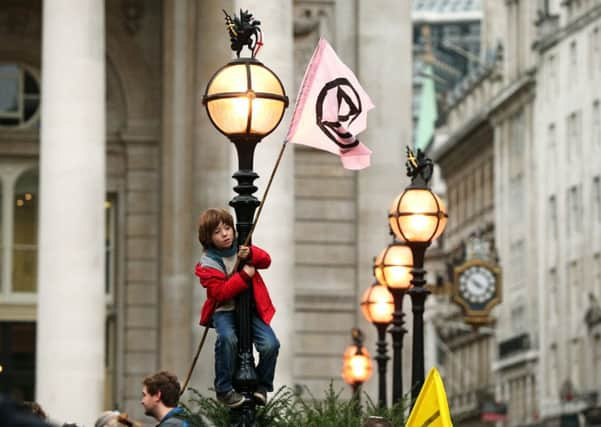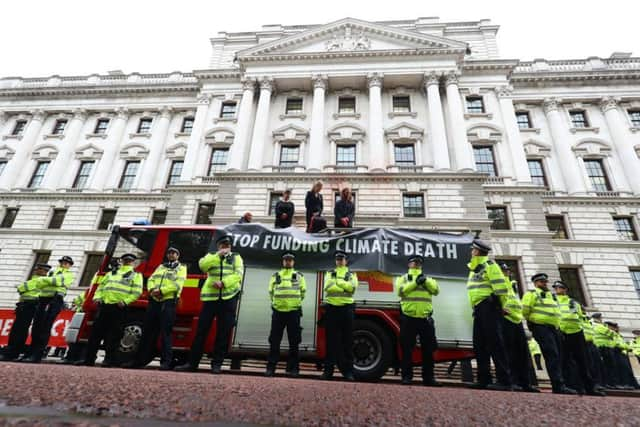Business must play a key role in tackling climate emergency - Beckie Hart


The impact of the massive changes to the climate can be seen everywhere and will have huge impacts on people around the world, with the world’s poorest seeing the impacts first and worst.
2019 has seen repeated and co-ordinated international protests, with over a million young people in more than 100 countries calling for politicians and businesses to prioritise action to slow global warming.
Advertisement
Hide AdAdvertisement
Hide AdFrom school strikes to the Extinction Rebellion, who started a new wave of protests in London last week, these demonstrations emphasise that a lack of action will be catastrophic – for the planet and the generations to come.


What does this mean for globalisation? And how does it impact the way that countries – and companies in our region – trade?
The impact of international trade on the environment is hotly debated – and rightly so. It’s true that trade does have some negative effects. As the world has become more connected, producers and consumers have become increasingly disconnected, so that domestic carbon dioxide emissions can be generated for goods consumed elsewhere.
Trade can therefore facilitate pollution havens, in cases where countries have significantly different environmental standards, while differences in waste disposal regulations have led to the shipping of rubbish from country to country.
Advertisement
Hide AdAdvertisement
Hide AdThese are challenges that must be tackled. But we shouldn’t overlook the many benefits, social and environmental, that trade can bring. Trade has led to more efficient supply chains, as countries and regions focus on areas where they enjoy a comparative advantage. Through economic growth, rising government revenues, access to overseas markets, and cheaper products, trade has helped lift over one billion people out of poverty since 1990.


Meanwhile, through international trade and investment, businesses are a key driver of innovation and research globally.
Innovations like drones, are being used to survey land and plant seeds, while new solar-powered refrigerators are being used to store vaccines on the go.
Trade is part of a complex, but interconnected web. It facilitates competition, innovation and ultimately prosperity. Managing it – and harnessing its benefits – will be key to solving the environmental challenges of the 21st century.
Advertisement
Hide AdAdvertisement
Hide AdLast week, the CBI is presenting the first ever set of recommendations on trade and the environment at the World Trade Organisation (WTO) Forum in Geneva, which brings together governments, international institutions, businesses and civil society from around the globe.
At every level, from domestic policy, to bilateral and regional trade, and international agreements, we want the UK to lead from the front. And with the government hosting COP26 in 2020 and the G7 in 2021, there’s scope to shape the global agenda.
This must start with a commitment to prioritise trade and climate action during the UK’s G7 in 2021. Across Whitehall, every government department has a role to play. The Treasury should be looking to increase the usage of green finance through more funding for the British Business Bank.
While the Department for International Trade can leverage the UK’s emerging role at the WTO to help reduce the barriers to trade in green products and services, like solar panels and energy-efficient lighting.
Advertisement
Hide AdAdvertisement
Hide AdThese are just some of the issues which firms want to see governments take the lead in, shaping the right frameworks to deal with climate change. But responding to the climate challenge requires the full and combined attention of government, civil society and business. It must be everyone’s responsibility. Otherwise, there is no chance of solving what is the biggest test of our times.